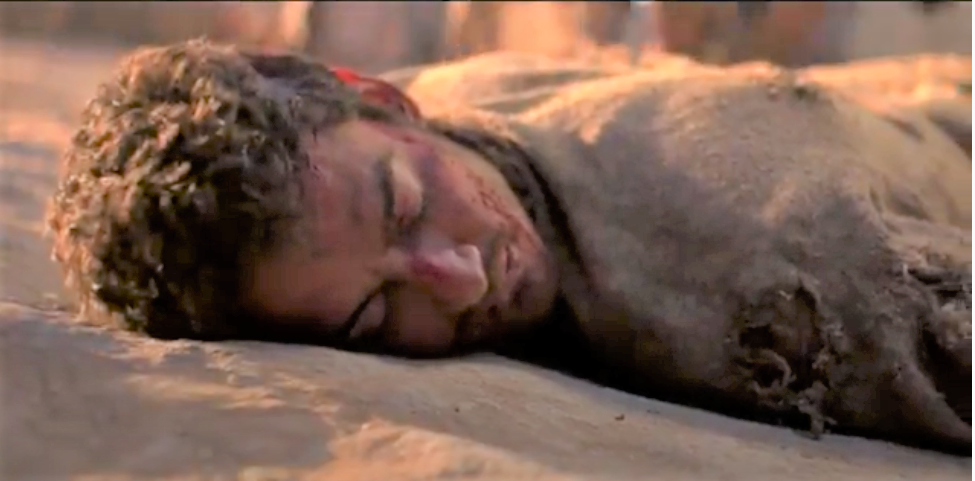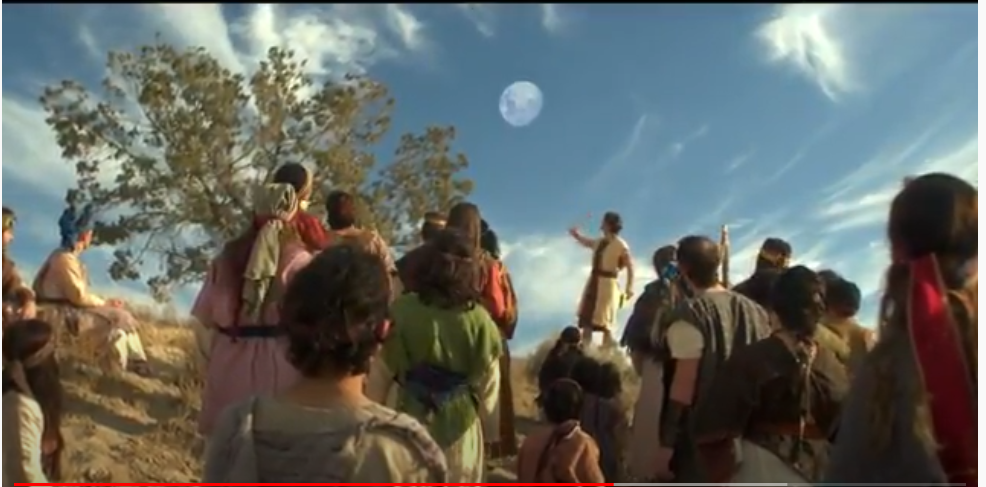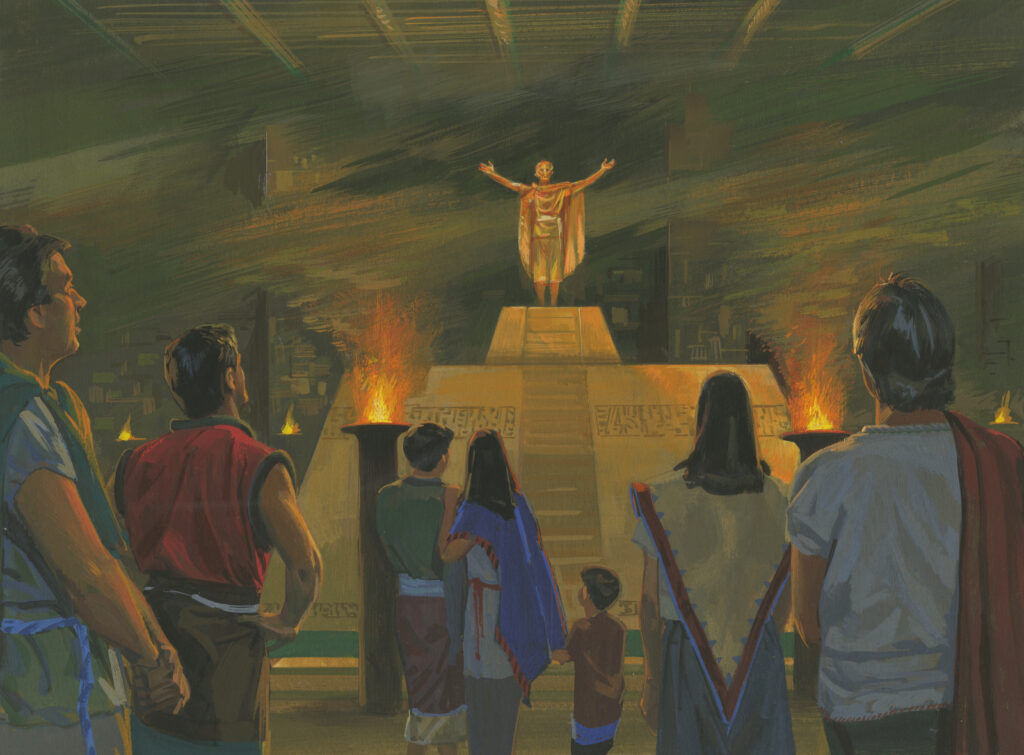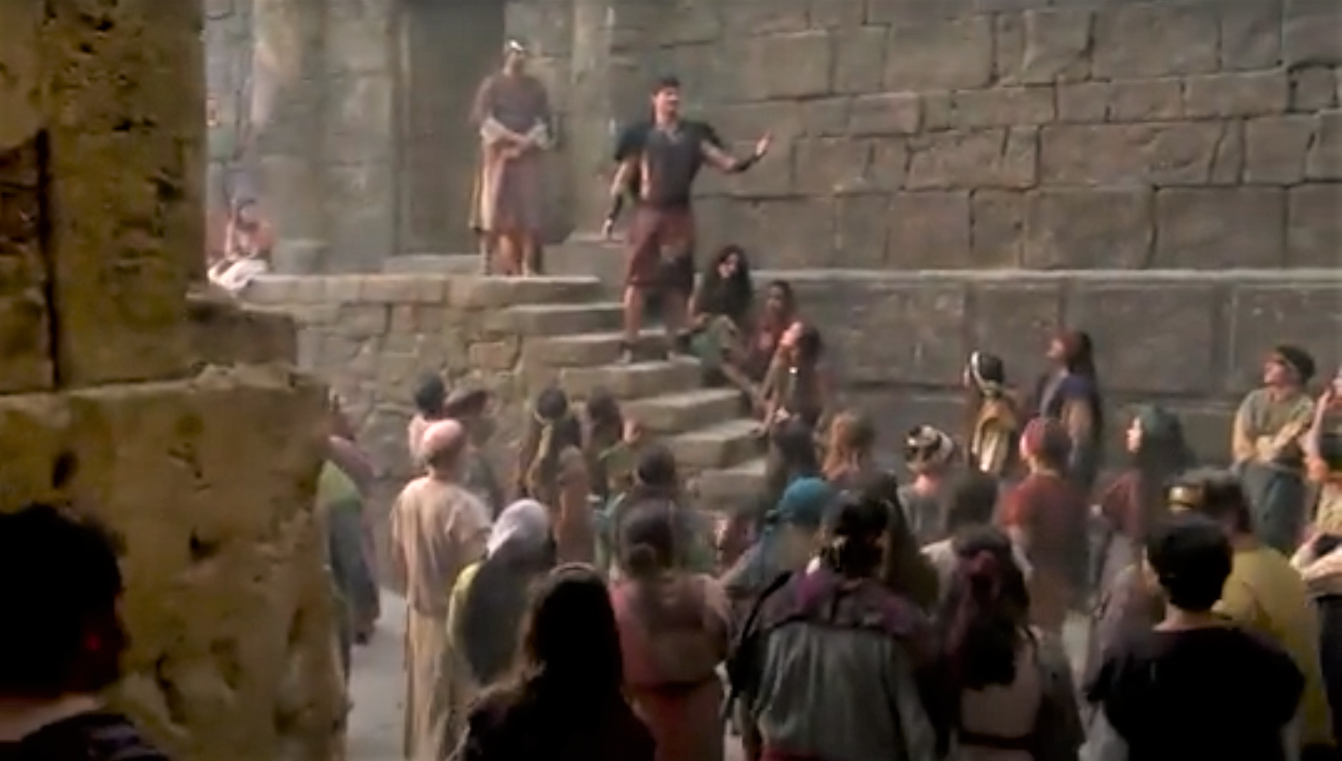To accompany your Come Follow Me study for July 15-21
In addition to reading Alma 30-31, you will enjoy watching the following videos:
You will also enjoy reading the following commentary from the Institute Book of Mormon Student Manual:
If you would like a Kahoot game related to this material which you could use for personal study or use with your family or your class, click here: https://create.kahoot.it/share/alma-30-31/921931ed-57db-413f-a17a-a696e8dc70d9 . To use it with a group, after clicking on this link, you will need to log into Kahoot, creating a free account if you have not done so previously, then click on the blue “Start” button. Some of the Kahoot questions may presuppose that the player has read through the suggested answers to the following Points to Ponder and at least has browsed the Institute student manual as well.
Points to Ponder in Alma 30-31
1. What principles can we learn from the Korihor story? [A principle is a fundamental or universal law, doctrine, or rule of conduct.]

2. Mormon tells us that one lesson to be learned from the story of Korihor is that the devil will not support his children at the last day but speedily drags them down to hell. What examples have you seen of this principle? Be specific.

3. What to you is the most convincing evidence that Alma cited to Korihor of the existence of God and spiritual realities? What additional evidence can you point to? What would you say to someone who said, “I’d really like to know whether or not there is a God. So far, I’m not convinced, but it would be the greatest news in the world, if I could be convinced that it’s true”?

4. How many times and in what ways does Korihor contradict himself? (See 30:13, 18, 28, 48, 53.)

5. What else does Korihor say which shows he was not just sincerely mistaken in his claims?
6. Introducing us to the Zoramites, Mormon says (31:9), “They had fallen into great errors, for they would not observe to keep the commandments of God, and his statutes, according to the law of Moses.” Do you believe the word “for” in that sentence means “for example” or “because”? Why?
7. Which of the following was not characteristic of the Zoramites?
a. belief in predestination
b. disbelief in the coming of Christ
c. daily worship upon the Rameumptom
d. distorted view of the nature of God
e. love of gold, silver, and all manner of fine goods
f. set prayers, repeated verbatim by each worshiper

8. Where in the practice of some people today do you see traces of Zoramite worship or philosophy? (Alma 31)
9. What are the greatest differences between Alma’s prayer and the prayer of the Zoramites? (Alma 31)

10. Why did Alma applaud at the end of his prayer? (31:36)

11. In 31:5 Alma asserts that preaching potentially has a more powerful effect upon the minds of the people than the sword or anything else. Can you give evidence in support of this idea from your own experience or from that of others? What additional implications does this concept have for church policy? For national policy? For classroom discipline? For parent‑child relationships?

POSSIBLE ANSWERS TO POINTS TO PONDER IN ALMA 30-31
1. What principles can we learn from the Korihor story? [A principle is a fundamental or universal law, doctrine, or rule of conduct.]
The following may be at least a partial list:
a. One should not be punished for his sincere beliefs (30:11)
b. Adultery is a crime which deserves to be punished by the law. (30:10)
c. A testimony of God and of spiritual realities is necessary to keep one from indulging in serious sin. (30:17-18)
d. Wisdom dictates that we not allow proponents of evil to spread their message without opposition. (30:20)
e. Anti-Mormons are typically not sincere in their beliefs. (See Questions #4, #5, and 30:53.)
f. There is sufficient evidence to convince all but the willfully blind that God really exists. (30:44)
g. It is better that one man perish than many. (30:47)
h. The devil will not support his children at the last day, but speedily drags them down to hell. (30:60)
2. Mormon tells us that one lesson to be learned from the story of Korihor is that the devil will not support his children at the last day but speedily drags them down to hell. (30:60) What examples have you seen of this principle? Be specific.
Possibilities could include:
a. The promise of liquor, drugs, immorality, and money to bring happiness, which they never do in the end.
b. Satan tempts others with the idea that they can become important in the eyes of the world by turning against the Church, but even the world has little respect for one who is not true to his principles, and apostates never gain the renown to which they aspire nor succeed in destroying the Church.
3. What to you is the most convincing evidence that Alma cited to Korihor of the existence of God and spiritual realities? What additional evidence can you point to? What would you say to someone who said, “I’d really like to know whether or not there is a God. So far I’m not convinced, but it would be the greatest news in the world, if I could be convinced that it’s true”?
Your choice. Of all that Alma cited, the most convincing to me is the testimony of multiple prophets and others. I also agree that the order in the universe should be compelling to all but the most stubborn. The most convincing evidence, of course, is always that which is most difficult to show to anyone else—the quiet whispering of the Spirit to one’s soul. There are also many external and internal evidences of the authenticity of the Book of Mormon, which in turn become evidences for the existence of God Himself. To someone who professes a sincere desire to know if the message is true, we can invite him to seriously read the Book of Mormon and apply Moroni’s test and promise (Moroni 10:3-5) as well as Jesus’ invitation to try the gospel out (John 7:16-17) and see if it works, promising that those who do so will know for themselves. It is difficult to imagine that a sincere seeker who embarked on an experiment to act like a committed Latter-day Saint would act for a month (attending church, paying tithing, participating in classes, reading scriptures, praying, etc.) wouldn’t end up convinced that the gospel is all we testify it to be.
4. How many times and in what ways does Korihor contradict himself? (See 30:13, 18, 28, 48, 53.)
After saying that no one can know of anything to come (30:13), he claims that he is an exception, being certain not only that God has never been seen or known but that he never will be in the future, either (30:28).
Then in 30:48 he backs off his claim of atheism and tries agnosticism, essentially repudiating his previous position.
And in 30:18 he basically denies the existence of any spiritual reality. But as we saw in 30:53, he didn’t bat an eyelash when a spirit being appeared before him and told him there was no God. Such a being, in the form of an angel, would himself be a god, if there were no other! Korihor, of course, is not interested in consistency but in winning the battle.
5. What else does Korihor say which shows he was not just sincerely mistaken in his claims?
For example:
a. In 30:15 he claims “ye cannot know of things which ye do not see.” But even Korihor would have had to admit that much is known through other senses, such as that of hearing, feeling, smelling, and tasting. And just because he had not experienced learning through spiritual senses, he was in no position to dogmatically insist that others had not.
b. In 30:25 he says: “A child is not guilty because of its parents.” But no one had said a child was thus guilty. Korihor deliberately distorted the true gospel teachings in order to try to put them in a bad light. The truth, of course, is that while a child is not “guilty” because of his parents, he may nonetheless suffer because of the bad actions or teachings of his parents and need a rescuer or “Redeemer” to counteract the bad effect the parents may have had on the child.
c. Korihor claimed that the church leaders were glutting themselves with the labors of their followers, when he knew that was not true. (30:27, 32)
6. Introducing us to the Zoramites, Mormon says (31:9), “They had fallen into great errors, for they would not observe to keep the commandments of God, and his statutes, according to the law of Moses.” Do you believe the word “for” in that sentence means “for example” or “because”? Why?
Either is possible. But I personally like to read it as meaning “because.” Very few apostates first lose their faith and subsequently stop obeying the commandments. Most often, they first stop keeping the commandments, and then, having lost the Spirit of the Lord, they change their beliefs so as to make them congruent with their actions.
7. Which of the following was not characteristic of the Zoramites?
a. belief in predestination
b. disbelief in the coming of Christ
c. daily worship upon the Rameumptom [They did it only once a week.]
d. distorted view of the nature of God
e. love of gold, silver, and all manner of fine goods
f. set prayers, repeated verbatim by each worshiper
8. Where in the practice of some people today do you see traces of Zoramite worship or philosophy? (Alma 31)
Every time we say a set or thoughtless prayer (such as in blessing the food) or go through the motions of being religious without having our heart in it, we are mimicking the Zoramites. We do the same whenever we esteem ourselves as being “better” or more beloved in the eyes of God than others.
9. What are the greatest differences between Alma’s prayer and the prayer of the Zoramites? (Alma 31)
The Zoramites focused on thanking God that they were better than others, whom they quite happily consigned to hell. Alma humbly acknowledged his weakness and need for God’s help and expressed love for those whom he was trying to help.
10. Why did Alma applaud at the end of his prayer? (31:36)
Trick question! This reference to “hand clapping” doesn’t mean applause! It means that Alma “put” his hands upon the heads of his associates and gave them a blessing prior to their embarking on their mission.
11. In 31:5 Alma asserts that preaching potentially has a more powerful effect upon the minds of the people than the sword or anything else. Can you give evidence in support of this idea from your own experience or from that of others? What additional implications does this concept have for church policy? For national policy? For classroom discipline? For parent‑child relationships?
a. We’ll see a classic example of this in Helaman 5, where two missionaries accomplish what all the Nephite army could not in getting Nephite land back from the Lamanites. And throughout history, the sword has been able only to change behavior, not to change another’s heart, which inspired preaching can do. The Church therefore focuses on spreading the gospel, rather than making their number one priority the eradication of poverty or disease. As President Benson said, the world focuses on changing people’s environment—getting them out of the slums, as it were—whereas the gospel focuses on changing people’s heart, after which they can get themselves out of the slums.
b. For national policy, it would teach us that no matter how strong our military might be, it can never be as great a guarantor of national security as national righteousness. Our missionaries are doing more for world peace than all the armies and politicians combined.
c. In the classroom and in the home we would do well to remember that we cannot achieve our desired results by force alone but that we need through love to focus on changing the hearts of our children or students.
